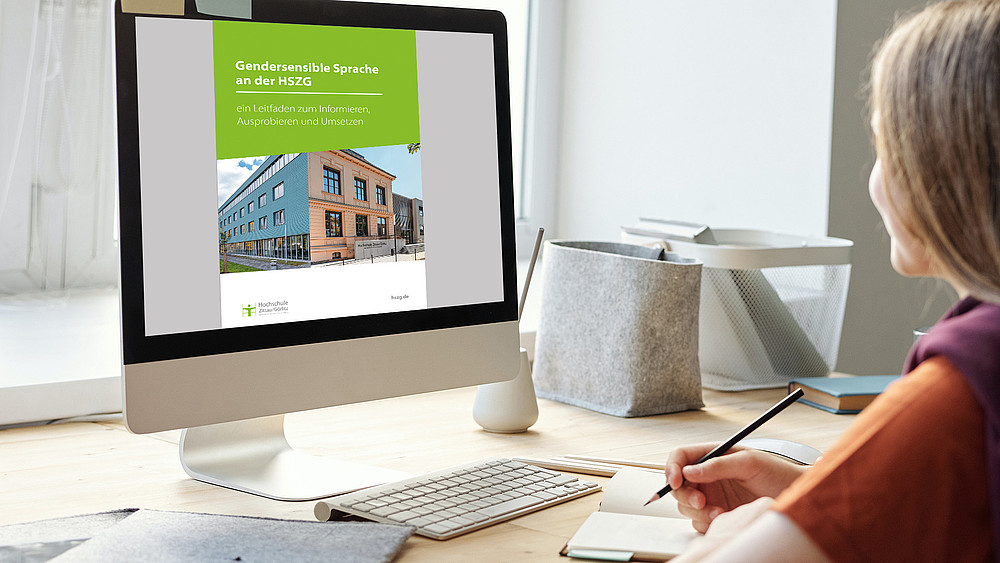The guidelines for gender-sensitive language at the HSZG go online.

The university's own gender language guide was published on the university information portal (HIP) on March 7. It is the result of intensive discussions by the working group, consisting of four committed female members of the HSZG:
In the interview, they describe what the gender language guide stands for, what key tips are offered for in-house communication and how the collaboration went.
"The Gender Language Guide is not a linguistic publication. Rather, it is a clearly structured set of recommendations for anyone who would like to use gender, but doesn't know exactly what options they have," explains Prof. Muschner.
”The numerous discussions resulted in a practicable compromise for the university. "The three co-authors brought me back from my linguistic cloud into their everyday university life more than once," smiles the linguist. In many cases, she says, there is simply no time available in everyday working life. Quick and clear solutions are needed so that the letter, application, report and other documents can be sent immediately.
With this in mind, the team has decided on three priorities: 1. neutral wording, 2. the gender star and 3. double naming. For those in a hurry, there is a glossary at the end with gender-sensitive formulations that have already become established at our university. "Uniform university guidelines are ultimately practical for everyone who doesn't want to think about the same stumbling blocks over and over again," says Prof. Muschner.
Peggy Sommer can only agree: "From a quality management perspective, the main aim was to establish a uniform language for internal communication processes, i.e. to define a standard."
She found it personally enriching that the four HSZG employees also learned a lot from each other during the exciting development process. Just like Antje Pfitzner: "The great thing about working together was that we all went into the discussion rounds with our own perspectives and attitudes on the topic. We converged on many points and learned a lot from each other, resulting in a product that we all fully support."
Equal Opportunities Officer Jana Reinhold is very pleased and also proud that the HSZG can now provide its members with a small internal 'guide' for gender-equitable language: "Demand has increased in recent months, even though attitudes to this topic still vary greatly. I hope we can use the guide to help break down barriers and skepticism and encourage people to use gender-equitable language." It is particularly important to her that the guide is understood and used by everyone.
After all, the question is: does gender-sensitive language have to be used? "No," says Annette Muschner. "Gendering doesn't have to be. It's always a very personal decision. If you want to continue using the generic masculine, you don't need our guidelines, of course."
From a linguistic perspective, some illegible and incomprehensible word monstrosities are of course also subject to criticism, says the linguist, but the process can no longer be stopped. "Far too many gender-sensitive words and phrases have already become naturalized in our language."
This is also impressively demonstrated by the results of corpus linguistics, which evaluates huge collections of texts from the press, radio, television and the internet, from administration, specialist literature and fiction. "So we are right in the middle of it all," says Annette Muschner confidently.
The team was particularly pleased that there was a lot of interest in the online conference "Gender-sensitive language - does it have to be?" held in January. Around 80 participants accepted the invitation and took part in the discussion.
The gender guidelines are intended to reflect and support language development at the HSZG. New language habits and needs will be incorporated again and again in the future. Jana Reinhold supports this view and summarizes: "The development of the guideline in our small, motivated team has shown how challenging and enriching language design can be. That's why the guidelines are not set in stone. We will continue to develop it and welcome any comments and suggestions."
Click here for the gender language guide!
Questions and suggestions are always welcome.
We look forward to your ideas!
Contact: gleichstellung(at)hszg.de